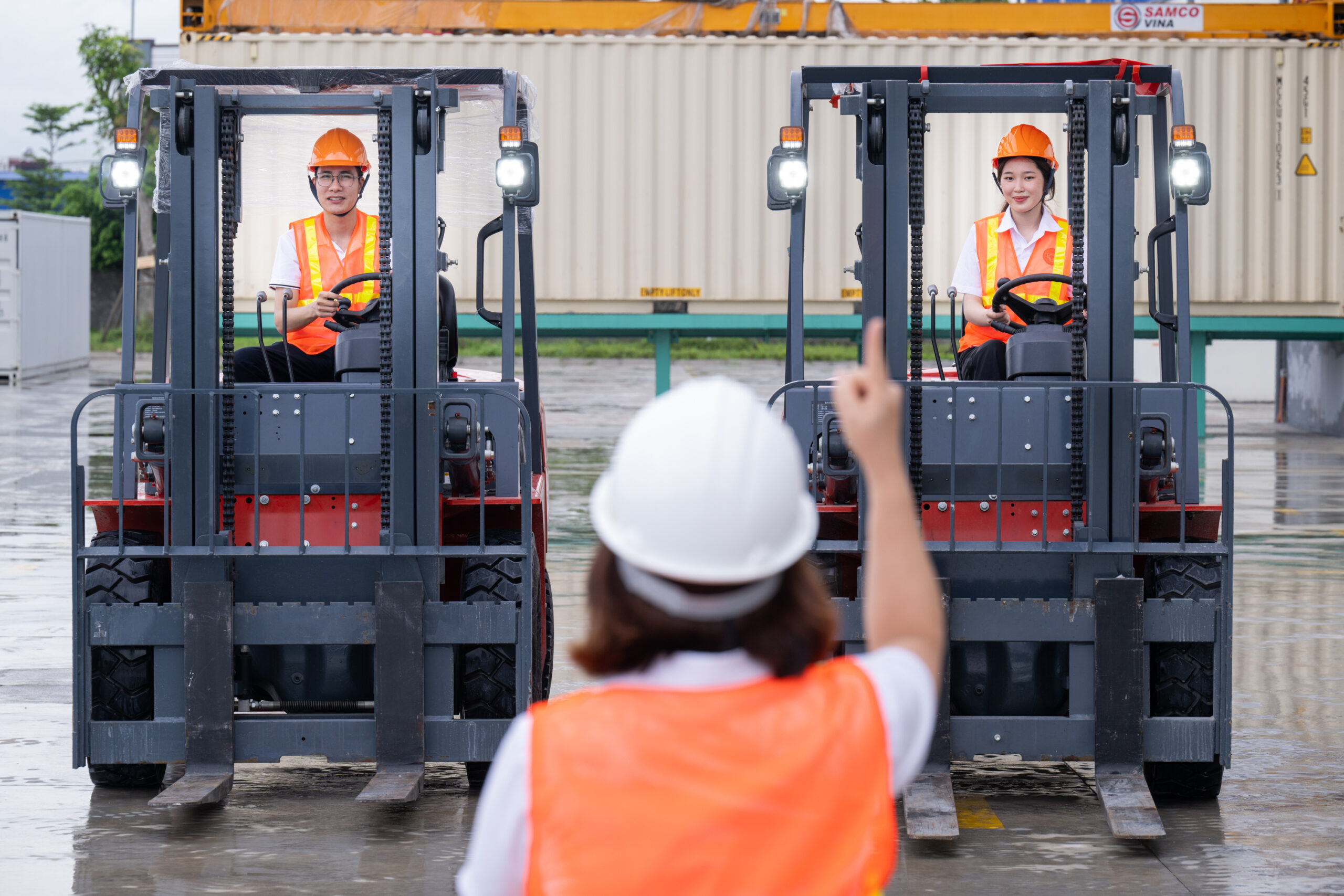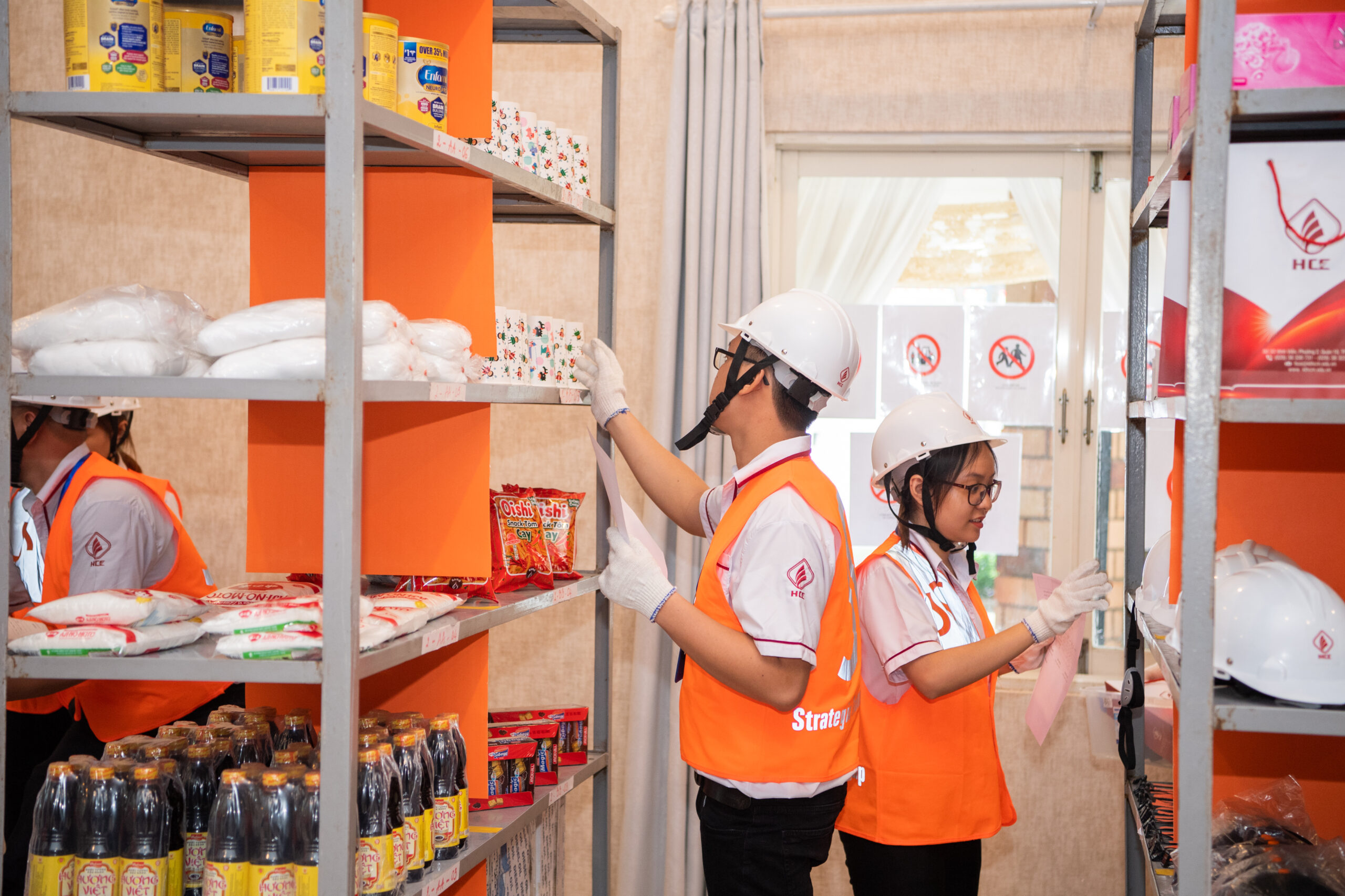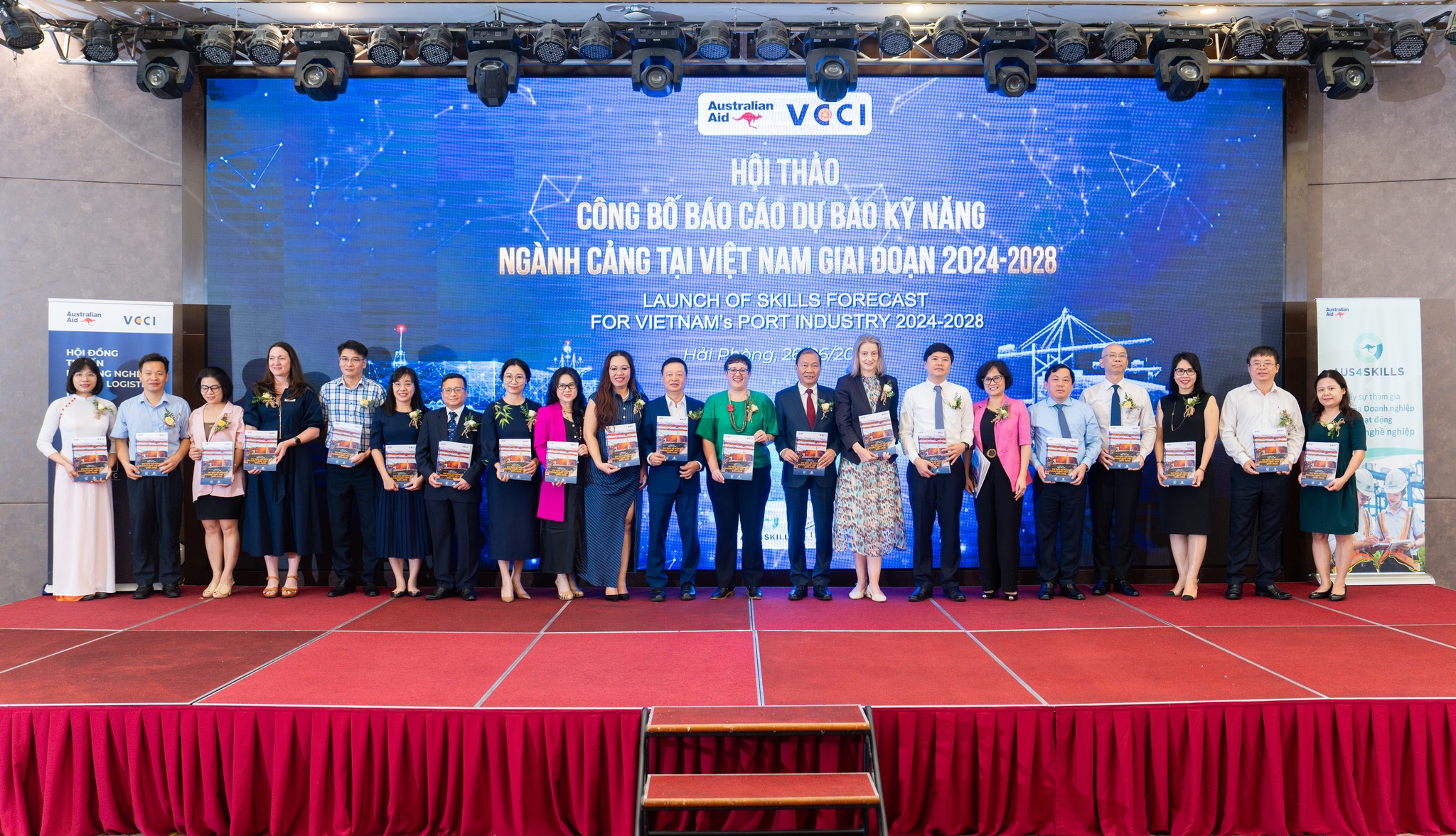
Vietnam’s rapidly evolving economy demands new approaches to education and training.
The Australian Government’s Aus4Skills program, delivered by Tetra Tech International Development, helps ensure the workforce has the right skills to meet industry needs.
Meeting Vietnam’s ambition with the right skills
The energy and buzz of Hanoi is infectious – small businesses on every corner, creative entrepreneurs carving out new niches and exciting new opportunities emerging every day. Across Vietnam, it is the same story. Socially and economically, Vietnam in 2025 is almost unrecognisable from 50 years ago.
The Government’s ambition to become a booming middle-income power is well underway, and the signs of success are everywhere.
But reaching this ambition relies on industry being able to access the right people, with the right skills and training, no small challenge. Crucially, it means Vietnam’s education and training sector must be able to produce highly trained graduates that can meet modern industry needs.
The value of vocational education and training
Often, this need for skilled workers leads to a focus on higher education. However, vocational education and training (VET) is no less important in providing critical skills for development.
In Australia, industry has long been intertwined with VET. Industry groups and businesses help to shape course content and provide training opportunities. Lecturers come from successful industry backgrounds, bringing real-world experience to their teaching.
The Aus4Skills program, funded by the Australian Government and delivered by Tetra Tech, is taking lessons from Australia’s multi-decades of experience, and applying them in Vietnam.

A model for industry-driven training
Focusing on the logistics sector as a key sector to drive Vietnam’s development, through the Aus4Skills VET project, Aus4Skills has forged relationships across industry, government, and VET colleges, to reshape how Vietnam delivers VET.
One of the major innovations introduced by the Aus4Skills program was to support the Vietnam Government to establish the Logistics Industry Reference Council (LIRC) in 2017. The LIRC is a formal mechanism for enhancing links between industry, education, and government to ensure vocational training is better meeting the evolving needs of Vietnam’s logistics sector.
Supported by an active secretariat hosted by the Vietnam Chamber of Commerce and Industry – Ho Chi Minh City branch, the LIRC brings together representatives from logistics companies, training institutions, and government bodies to provide insights into the skills and knowledge required in the industry.
This allows for the development of a curriculum that is not only up-to-date but also forward-thinking, preparing students for emerging trends such as automation, digitalisation, and sustainability in logistics. With industry experts directly involved in curriculum development and training delivery, graduates are more likely to possess the skills that are in high demand, improving their employability and reducing the skills mismatch that has hindered historical growth.
Creating systems that respond to real-world demands
By strengthening collaboration and allowing for sharing of insights experiences, the LIRC ensures that training programs reflect real-world requirements, helping to bridge the gap between education and industry demand. This cooperative approach can not only improve the quality of vocational training but also create a more adaptive and responsive workforce capable of meeting the rapid changes in the logistics sector.
The LIRC’s work extends beyond curriculum development – it also plays a critical role in creating industry-recognised certifications and qualifications that are recognised across the sector.
This standardisation of skills ensures that employers have a clear understanding of what competencies graduates possess and that employees are adequately prepared for the challenges they will face in the workplace.
These qualifications also give workers greater mobility within the industry, as their credentials are transferable across companies and regions, further enhancing the dynamism and flexibility of the labour market.

Building a sustainable system with international collaboration
The success of the LIRC model is largely due to its emphasis on continuous feedback loops, and strong continued connections with Australian expertise, facilitated by the Tetra Tech Aus4Skills team. Regular consultation between stakeholders, drawing on international experts and contextualising for Vietnam, ensures training programs and the LIRC remain relevant and aligned with both short-term industry needs and long-term trends.
This ensures that Vietnam’s logistics workforce is not just reactive but proactive, adapting quickly to innovations and evolving market demands.
With the support of Tetra Tech, the LIRC has recently released the first Industry Skill Forecast Report for Vietnam’s port industry. The report revealed key shortages in technical and general skills and recommended further engagement between Vietnam’s port industry and vocational education and training providers to ensure graduates better meet employer needs.
The report will support Vietnam’s port industry to further increase collaboration with vocational education and training providers to better meet employer needs.
A model for other sectors and countries
Supported by Tetra Tech through Aus4Skills, in eight years of operation, the LIRC has gone from strength-to-strength and is now a valuable part of Vietnam’s VET landscape.
It also offers an inspiration for other sectors in Vietnam and other countries, as a scalable framework for industry-education-government collaboration that supports businesses to access the skilled workers they need to thrive and equips individuals with the knowledge and qualifications to succeed in a competitive job market.
The Tetra Tech Aus4Skills team combines prior corporate expertise and extensive local knowledge to provide unique support in uniting the private sector, industry, and government to achieve ambitious economic development goals.
Tetra Tech brings extensive global experience in higher education and VET sector development, including in Vanuatu and Tuvalu, as well as enhancing links between the private sector, government and training providers through its successful Australia-funded food security training project in Indonesia.
Read more about Tetra Tech’s work with Aus4Skills: Fostering Bilateral Cooperation Between Australia and Vietnam – Tetra Tech International Development
About the author
